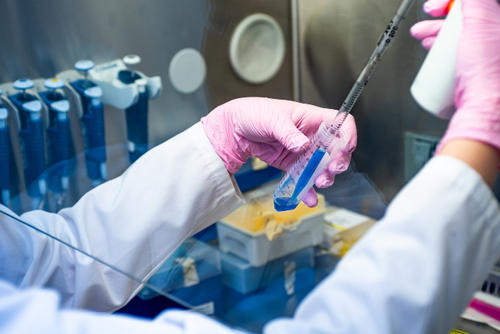Ethics around businesses marketing unproven and unlicensed COVID-19 stem-cell-based “therapies”

As the public looks for treatments for SARS-CoV-2, some businesses in the United States are marketing unlicensed and unproven stem-cell-based “therapies” and exosome products that claim to prevent or treat the disease.
In a recent journal article in Cell Stem Cell, University of Minnesota bioethicist Leigh Turner studied how companies are capitalizing on the pandemic by promoting unproven methods of stem-cell-based treatment. There is a history of private clinics pushing unlicensed and non-evidence-based interventions for injuries and illnesses.
“I’m concerned that individuals purchasing these supposed ‘therapies’ for COVID-19 will be scammed,” says Turner, an associate professor at the University’s Center for Bioethics. “I’m also worried that they’ll be injured as a result of being given products that haven’t been adequately tested, or that they’ll forgo measures like social distancing because they’ve paid for a product that they think will protect them from being infected or getting sick.”
The research found that immune-boosting claims by private companies have been compounded by reporting on preliminary evidence and case studies. For consumers, it is important to note that rigorous clinical trials on these stem cell products have not yet been done.
“Randomized controlled trials are needed to establish whether particular stem cell products are safe and efficacious in the treatment of COVID-19-related acute respiratory distress syndrome,” said Turner. He emphasized the role of scientific societies in urging patients and consumers to be wary of businesses selling unproven interventions that lack scientific evidence.
“I want members of the public to know that some companies are trying to take advantage of them by selling supposed treatments that aren’t backed by credible evidence,” said Turner, who has studied the U.S. direct-to-consumer marketplace for stem cell clinics for nearly a decade. “I’m also hoping that this paper will catch the attention of regulatory bodies like the Food and Drug Administration (FDA) and the Federal Trade Commission (FTC), as well as state medical boards and state attorney general offices. The FDA and FTC have issued letters to some businesses, but additional regulatory action is needed.”
About the University of Minnesota Center for Bioethics
The Center for Bioethics helps students, professionals, policy makers, and the public confront and understand ethical issues in health, health care, new biomedical technologies, the environment, and the life sciences. We teach, publish, and help create policy through our outreach. We also offer programming that includes public engagement as part of our commitment to respond to issues and concerns important not just to the academic community but to communities within the Twin Cities and beyond.




